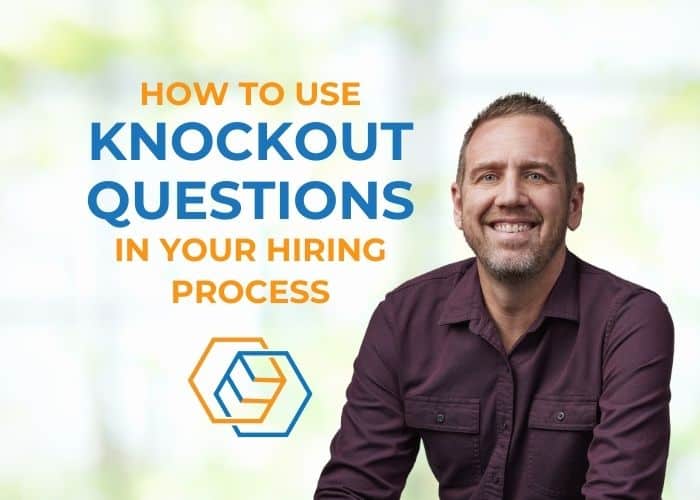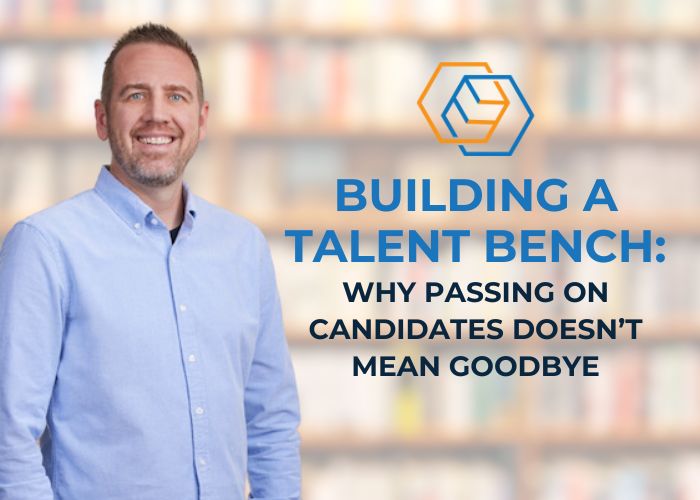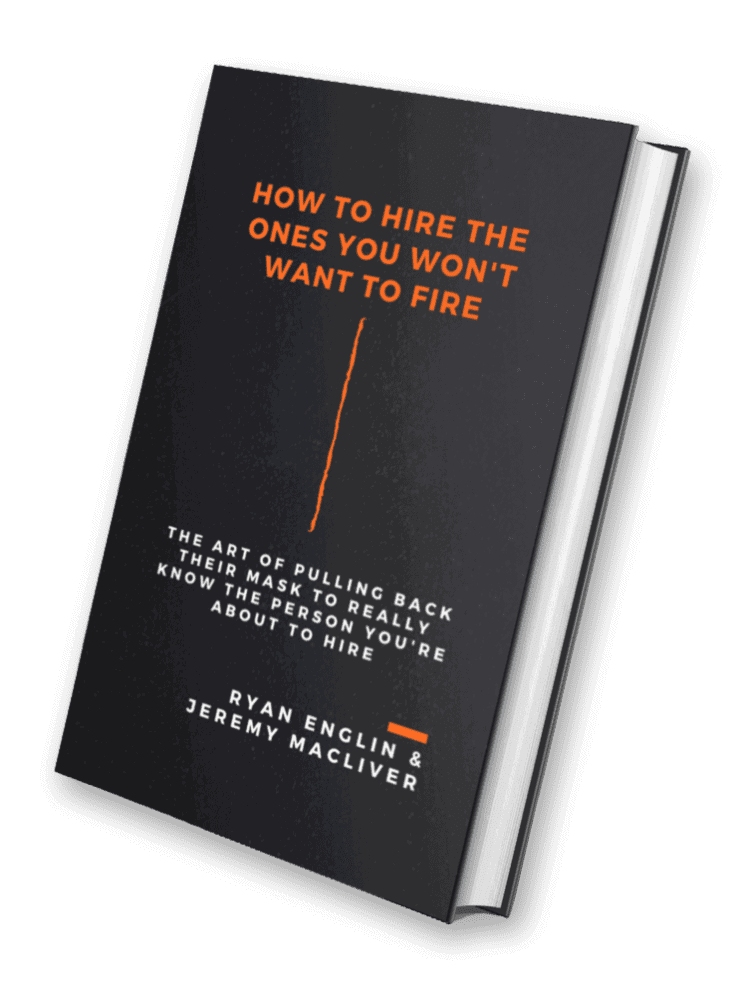Move Hiring From Your Head to Your Heart

Step into the world of hiring, where it often feels like people are more focused on past performance than connecting on a personal level. But what if we flipped that script?
Picture this: a hiring manager ditching the usual resume-based questions for a real heart-to-heart chat. We’re talking about moving away from the usual back and forth of short questions and rehearsed answers and diving into authentic conversations.
Imagine a hiring process that goes beyond skills on paper, where you really get to know the person behind the qualifications.
Be the Better Boss
One of the biggest challenges that companies face is they have someone who isn’t going to be working with the employee running the interview. Often, this is intentional so emotion is removed from the hiring process.
Unfortunately, this is the opposite of what job seekers are looking for. They want to know who they’re going to be working with. Remember, people don’t leave jobs, they leave bosses. The interview is your opportunity to let them know you can be the better boss.
Hiring From Your Head
Hiring from your head during the screening process is smart and efficient. This is the time to focus on metrics – years of experience, training and certifications, and skills. However, once you move onto the interview phase, you have to focus on the person in front of you.
The 18 Inch Journey
While hiring from your head may seem like a quick solution, recruiting decisions can’t stop there. You have to start hiring from your heart too. Only then will you have a long term strategy that will allow your company to grow and scale with a solid team in place.
“Effective recruiting is an 18 inch journey from your head to your heart.” -Ryan Englin, Founder & CEO of Core Matters
When you’re hiring, you have to think about each candidate’s skills and abilities – especially the basic things you aren’t willing to train them on. For these types of skills, you have to use your head to make the decision about whether or not they can perform.
Beyond that, you have to consider a candidate’s intangible qualities, including communication, determination, work ethic, and so much more. These characteristics probably won’t be listed on a resume or job application.
This means you have to craft your interview questions in a way that allows you to uncover who candidates truly are. Once you get to know them on a deeper level, you’ll start to realize their personal values and whether or not they’d be a good culture fit.
Crafting behavior based questions will help you uncover a candidate’s authentic self and determine if they would be a good fit for your company. During the interview, listen to how each candidate talks about their decisions, tells stories about themselves, and completes tasks.
Being intentional with your interview questions will help you move hiring from your head to your heart.
Focus on the Employee
Most of the recruiting issues companies face are head issues. You want someone who has a stable work history, but you also want someone who’s flexible and stays on top of industry trends. You want someone who has all the advanced training and certifications complete, but you aren’t willing to pay top dollar to get them. The list goes on and on.
When we focus on what we, as the employers, need, we’re not going to come across as a great place to work. Instead, we need to focus on the employee. Your recruiting strategy should highlight what’s in it for them.
If you’re hiring from your head you’ll include all the boring stuff – hourly rate, paid time off, and other benefits. This type of job ad won’t attract the top candidates in your industry.
Instead, you need to explain what makes working with you special. Do your leaders truly care about their team? Is everyone looking forward to the company outing to the baseball game this summer? Do you offer financial coaching because you want your team to make the most out of their paycheck? These types of perks make people want to work with you, even if the pay isn’t quite as high as your competitors.
Job Ads
Put yourself into the job seeker’s shoes and change your job posting into a heart-focused ad. Make sure it’s written from a place of empathy and understanding.
You know what it’s like to want to leave a bad boss and start over – it’s stressful and uncertain.
Connect with job seekers and reassure them about what you have to offer. It’s easier to make the leap and accept a job offer when you understand the full picture of what it’ll look like to work there.
Interview Process
Hiring managers have forgotten that people are involved in the interview process. Instead of talking about past performance, conversations should be connection-based, allowing you to get to know the candidate authentically.
Understand that the job seekers are going through one of life’s most stressful events. Make the process as easy as possible for them. You can do this by:
- Communicating effectively and regularly
- Setting proper expectations
- Understanding their needs
Once the candidate has accepted your offer, they’ll probably wonder if they made the right decision. Do everything in your power to let them know your team will treat them well and you’re happy they’re joining you.
Onboarding
Remember how you felt when you were new?
Exhausted… Overwhelmed… Isolated…
Without a solid onboarding plan in place, your new hires will be frustrated too. It takes time and intentionality to build a company culture that people want to be a part of.
Deloitte’s Human Capital Trends report ranked “belonging” as the top issue that companies are currently facing. A whopping 93% of people shared that a sense of belonging drives their performance. That’s nearly everyone. If you want to improve productivity and profitability, you have to start with connection and morale.
Take time to plan out your new hire’s onboarding process so they get to know the people as well as the processes. Schedule regular check-ins during those first weeks to make sure they’re acclimating and feeling like a part of the team.
Engagement
Once your new hire is settled into their role, the onboarding continues! People stick with employers because they feel connected to them. Intentionally take steps to:
- Ask what you can offer your team
- Find out how you can improve their lives after they go home
- Help your team grow personally and professionally
The number one way you can show your team you care about them is by investing in them. The majority of their waking hours are spent giving their time and energy to your company. Make sure you reciprocate their efforts.
Whether you’re writing job ads, developing your employer branding, or doing other things to attract people to your company, you have to make sure you’re showing people how you’re here to benefit their life.
Hire From Your Heart
With employers desperate to fill vacancies, it’s tempting to hire from the head and leave it at that. And while that’s an effective way to filter through paperwork, it’s not enough if you’re trying to build a high quality team.
At Core Matters, we work with clients to achieve a strategic series of questions that keeps the interview process consistent and focused on finding a Core Fit. If you’re ready to move hiring from your head to your heart, give us a call. We’d love to help you implement a hiring system that actually works.



